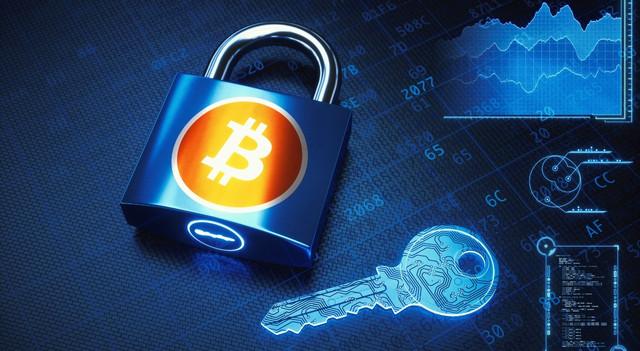
The latest data from the United States job market showed a notable improvement, with the unemployment rate falling to 3.7%, surpassing expectations of around 3.9%. Furthermore, there was a significant increase in non-farm payrolls, reaching 199,000, exceeding the forecast of 180,000. These indicators reflect a strengthening of the job market, an encouraging sign for the health of the American economy. Amid this optimistic economic scenario, Bitcoin (COIN:BTCUSD) recorded a moderate increase of 1.4%, reaching $43,903. Fernando Pereira, an analyst at Bitget, offered his perspective on the technical analysis, noting that “in the very short term, especially on the hourly chart, there is a triangle formation at the top that broke down in BTC. This setup suggests that Bitcoin may retreat to the $42,000.00 range still this week”.
The Starknet Foundation (COIN:STRKUSD) announced a growth strategy, planning to distribute 1.8 billion STRK tokens for various initiatives. This plan, announced on December 8th, follows the confirmation of an airdrop of STRK tokens. Half of the tokens will be allocated to reward the current and future community, while the other half will serve to offer transaction fee discounts. A specific committee will oversee this distribution. Additionally, 50 million tokens will be used to foster activities in decentralized finance (DeFi) on Starknet, an Ethereum layer-2 network that utilizes a zero-knowledge roll-up scalability solution.
The JTO token of Jito, a liquid staking project on Solana, saw an impressive 80% increase in its value after being listed on renowned exchanges such as Coinbase (NASDAQ:COIN) and Binance. Reaching a peak of $3 and stabilizing at $2.90, JTO achieved a market capitalization of $333 million. This growth follows a generous airdrop of 90 million JTO to early users, encouraging participation in Solana’s DeFi ecosystem. Dan Smith of Blockworks praised the airdrop strategy for its ability to attract new users to cryptocurrency. Jito, built on Solana, offers users rewards for staking with JitoSOL tokens, having already attracted about 75,000 users and locked assets worth $455 million.
LayerZero, a blockchain interoperability protocol, officially announced the launch of a native token, after months of intense speculation. The framework for a token had been present since the beginning, as indicated in its code. The project, valuing clarity in communication with the community, plans to launch the token in the first half of 2024, likely through an airdrop to reward early users. The company behind LayerZero recently raised $120 million, valuing itself at $3 billion.
Binance abandoned its application for an investment management license in Abu Dhabi, considering it irrelevant to its global goals. The exchange is still seeking a license for digital asset custody, but emphasized that the withdrawal does not affect its core operations. CEO Richard Teng clarified that Dubai is Binance’s hub in the Middle East, regardless of the recent $4.3 billion fine in the US. Furthermore, former Binance CEO Chanpeng Zhao is prohibited by a federal judge in Seattle from returning to the United Arab Emirates until his sentencing in the US in February, due to flight risks.
Do Kwon, founder of Terraform Labs, is close to being extradited to the US, as reported by the Wall Street Journal. Arrested in Montenegro, he faces fraud charges in the US and South Korea. The extradition decision, already approved by a Montenegrin court, now depends on Justice Minister Andrej Milovic, with the likelihood of extradition to the US being high.
Safe, a provider of smart wallet infrastructure, is collaborating with Sygnum Bank and CoinCover in the UK to launch the “Safe Recovery Hub,” an innovative cryptocurrency recovery service. This service ranges from self-custody to social recovery, allowing users to optimize recovery methods according to their needs. Users maintain full control, with the option to appoint trusted recoverers. This initiative aims to solve the problem of lost keys, improving digital asset management.
Block (NYSE:SQ), co-founded by Jack Dorsey, launched the self-custodial Bitcoin wallet Bitkey in over 95 countries. Bitkey offers users the ability to control, manage, and store their Bitcoins securely, off exchanges. Designed to be an easy and secure self-custody solution, Bitkey features a three-key security system, with two needed for transactions and security actions. Bitkey, priced at $150, is compatible with Coinbase (NASDAQ:COIN) and Cash App, facilitating the transfer of Bitcoin (COIN:BTCUSD).
The Phoenix Group, a prominent Bitcoin miner in the United Arab Emirates, signed a $380 million contract with WhatsMiner for the acquisition of hydraulic cooling mining equipment. This deal, made soon after the company’s debut on the Abu Dhabi Stock Exchange, includes hydro-cooled miners for high-performance data centers. With an initial purchase of $136 million and an additional option of $246 million, Phoenix positions itself as a leader in efficient and environmentally responsible mining in the Middle East.
El Salvador introduced an innovative visa program, “Embracing El Salvador’s Freedom Visa,” with a budget of $1 million. This program, limited to 1,000 participants annually, aims to attract investors to residency and citizenship through a minimum investment of $1 million in Bitcoin or USDT. Approved applicants can also obtain a Salvadoran passport and citizenship. According to Deputy Foreign Minister Adriana Mira, this initiative is a unique opportunity to contribute to the country’s future. The Ministry of Foreign Affairs anticipates that the program could generate up to $1 billion per year, in partnership with stablecoin company Tether (COIN:USDTUSD). This program is considerably more expensive than similar initiatives in the Caribbean, as indicated by Henley & Partners.

It looks like you are not logged in. Click the button below to log in and keep track of your recent history.